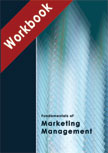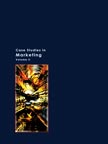The Indian Petroleum Industry: Towards Branded Fuels
|
ICMR HOME | Case Studies Collection
» Marketing Case Studies 
Custom Search
Please note: |
||||||
|
"As the market becomes competitive, brand management will require careful thought. Though differentiation remains the key to competitive advantage, it may no longer serve the purpose." - Madan B Lal, Chairman and Managing Director, Hindustan Petroleum Corporation Limited. "All players will have to focus largely on brand building and marketing to grow in the market place." - Madhu Nainan, Editor, Petrowatch-India, commenting on the future of Indian Petroleum Industry. The Launch of Branded Fuels
The Indian Petroleum Industry: Towards Branded Fuels - Next Page>>

Custom Search
1] BPCL was formed in the 1970s by the Indian government as a part of its nationalization drive for oil companies. Over a period of time, the government stake in the company was diluted from 100% to 66%. BPCL had an overall market share of 20% in 2002. The company had an extensive marketing infrastructure and a vast network of retail outlets (under the 'In & Out' and 'Pure for Sure' initiatives) across the country. |
Case Studies Links:-
Case Studies,
Short Case Studies,
Simplified Case Studies.
Other Case Studies:-
Multimedia Case Studies,
Cases in Other Languages.
Business Reports Link:-
Business Reports.
Books:-
Text Books,
Work Books,
Case Study Volumes.







